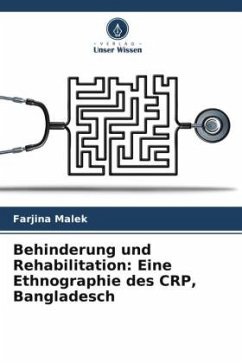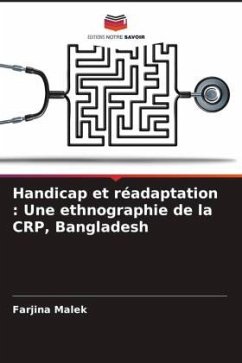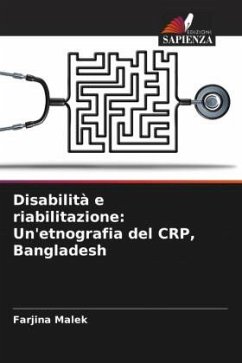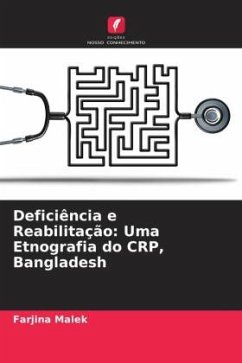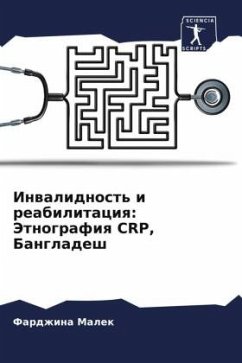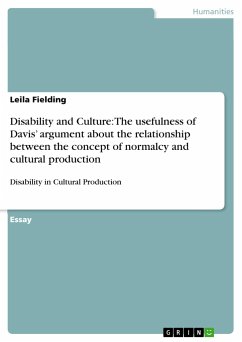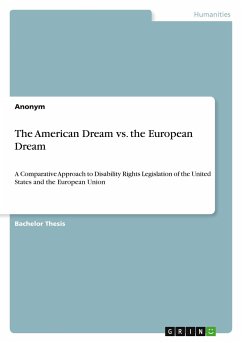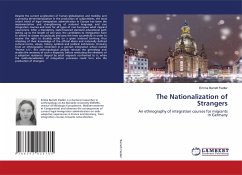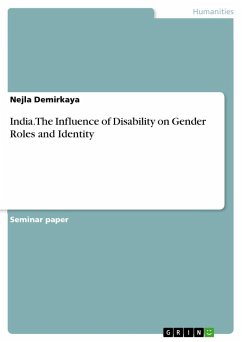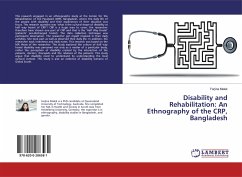
Disability and Rehabilitation: An Ethnography of the CRP, Bangladesh
Versandkostenfrei!
Versandfertig in 6-10 Tagen
27,99 €
inkl. MwSt.

PAYBACK Punkte
14 °P sammeln!
This research engaged in an ethnographic study at the Center for the Rehabilitation of the Paralyzed (CRP), Bangladesh, where the daily life of the people with disability and their experiences of their situation was focus. The research question was 'what is the cultural shape of disability at half way hostel of CRP'? CRP is a huge area to cover, the researcher therefore have chosen one part of CRP and that is the 'Half Way Hostel' (patients' pre-discharged hostel). The data collection technique was participant observation. The researcher got myself involved in their daily activities. She took ...
This research engaged in an ethnographic study at the Center for the Rehabilitation of the Paralyzed (CRP), Bangladesh, where the daily life of the people with disability and their experiences of their situation was focus. The research question was 'what is the cultural shape of disability at half way hostel of CRP'? CRP is a huge area to cover, the researcher therefore have chosen one part of CRP and that is the 'Half Way Hostel' (patients' pre-discharged hostel). The data collection technique was participant observation. The researcher got myself involved in their daily activities. She took part as well as observed their daily life. In addition, the researcher took interviews and daily notes. This research was based on the MA thesis of the researcher. The study explored the culture of half way hostel disability was perceived not only as a matter of a particular body, rather the perception of disability created by the interaction of the patients, doctors, therapists and the relatives of the patients. This study argue that disability need to understand by understanding the local cultural context. This study is also an evidence of disability scenario of Global South.



